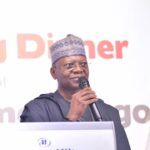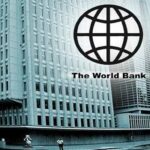The former Emir of Kano Muhammadu Sanusi II has said that the federal government cannot continue to borrow to consume while passing the bulk to the future generation.
He also called on citizens to be productive by thinking about what they could do to support themselves instead of depending on government for everything.
- PODCAST: How Daredevil Bandits Invaded NDA, Killed Officers
Fear of closure as FG begins inspection of 54 car assembly plants
Sanusi, who is the leader of Tijjaniyya sect in Nigeria, made the remark at a threefold event to mark his 60th birthday, launch his book and raise funds for the Muhammadu Sanusi II SDG challenge.
The MSII SDG funds targets $2million to support the United Nation’s goal of providing lifelong learning and gender equality.
He said: “Nigerians have to understand that the way we have tuned our systems is unsustainable. We cannot continue to subsidize petrol.
“Nigerians have to understand that the way we are running the state is unsustainable. We cannot continue subsidizing fuel; we cannot continue subsidising power.
“It is desirable but not sustainable but we have to be ready to make certain sacrifices. But if we don’t make those sacrifices now and set a fiscal position of government so that we are not relying on excessive borrowing, we are putting the future of this country in jeopardy,” he said.
According to him, “This generation will continue borrowing to consume while passing the debt to the next generation to pay. It is difficult decision to make but we have to make it.”
Sanusi said citizens had wasted time looking to the government to solve their problems, adding that given the challenges of development, “each of us has to say, what can I do.”
In a pre-recorded interview played at the venue, the former Kano emir stressed that by the end of this year, Nigeria’s Gross Domestic Product (GDP) will be worse than it was in 1980, pointing out that spending of up to 90 per cent of the country’s revenues on debt servicing was unsustainable.
“You look at the World Bank economic quality indicators and you will be shocked at what you are seeing. If we take Nigeria’s GDP per capita on a PPP (Purchasing Power Parity) basis, in 1980 it was $2,180 and by 2014, it was $3,099, which increased it by 50 per cent.
“Between 2014 and 2019, this number fell to $2,229. At this rate, by this year or next year, Nigeria’s GDP per capita on a PPP basis will be back to where it was in 1980.
“We have not moved. We wiped out in five years all the progress made in the preceding 35 years. That is the kind of conversation we should have which we are not having. And what are the key drivers of this: you have got rising population growth, slow GDP growth, higher rates of inflation, and devaluation of the currency,” he said.
He stated that rather than focus on religion and other inanities, Nigerians should interrogate the incumbent government on its social policies, how demographic movements could be controlled, and how to fix the issues underlying a lot of Nigeria’s challenges.
He maintained that rather than being a religious issue, the rapid increase in population has made “farmlands become houses”, while “grazing routes have become farms”, explaining that the conflict between herdsmen and farmers was over resources and not ethnicity or religion.
Also speaking at the event, The Governor of Central Bank of Nigeria, Godwin Emefiele, said: “We have a responsibility as managers of the economy to ensure the machine keeps running for the good of our nation.”

 Join Daily Trust WhatsApp Community For Quick Access To News and Happenings Around You.
Join Daily Trust WhatsApp Community For Quick Access To News and Happenings Around You.


